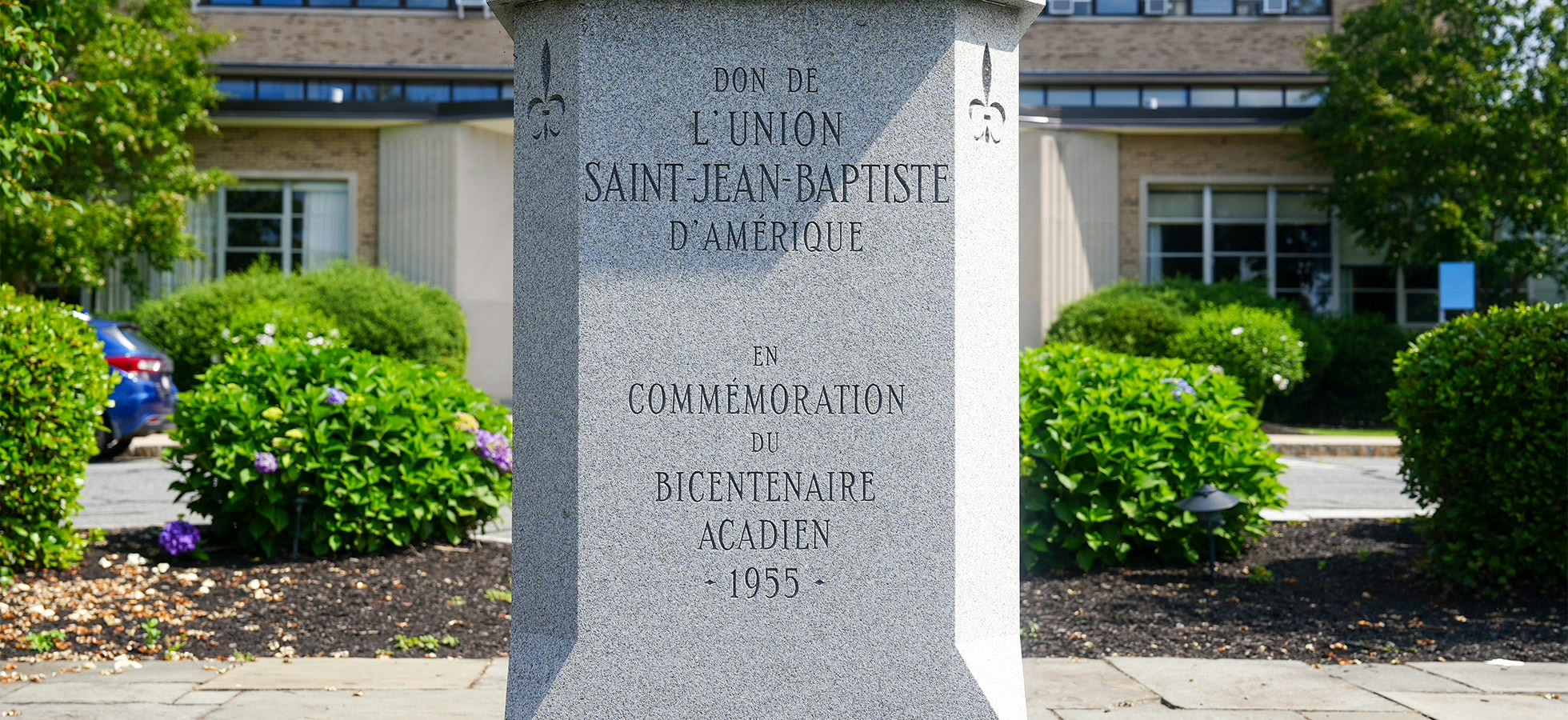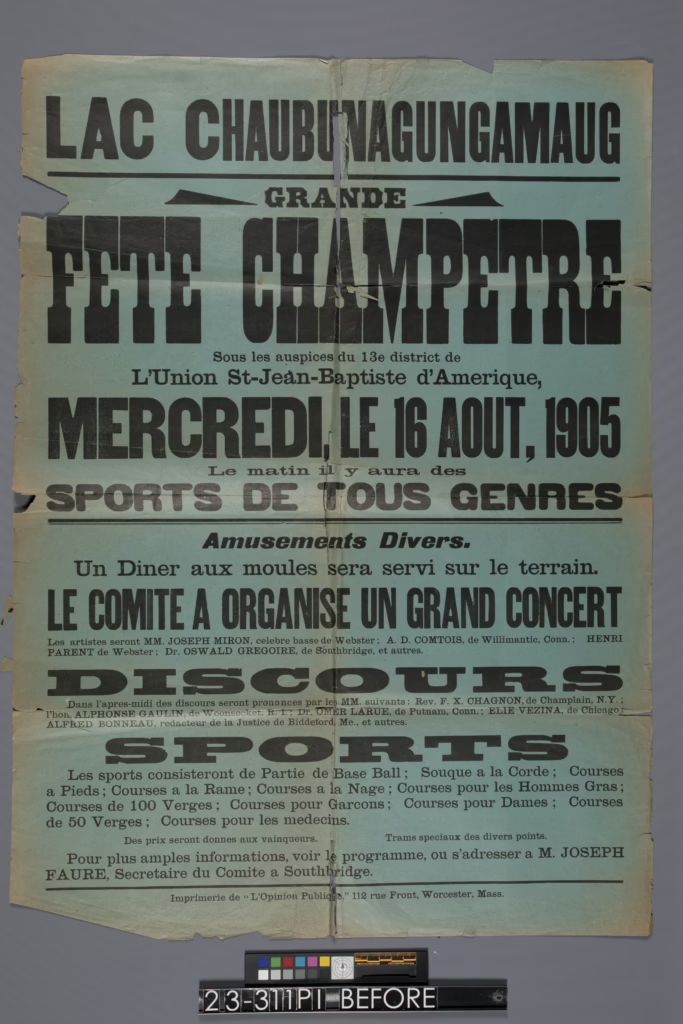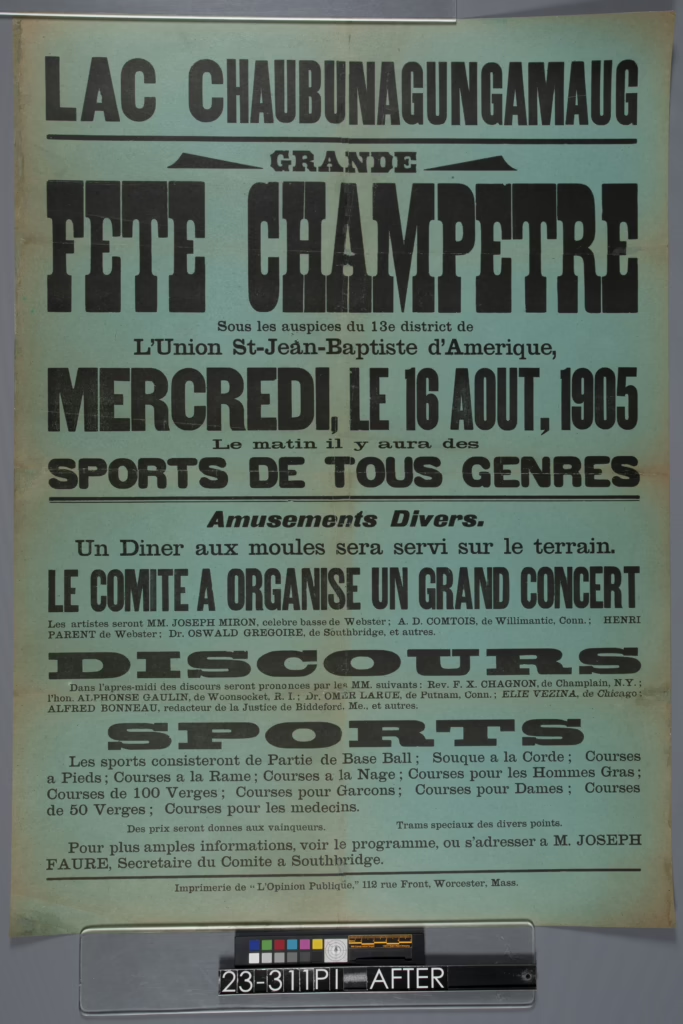French Institute Awarded Major Initiative Award Grant

On the third floor of La Maison Française, the first-hand stories of Franco-American families from across the country live in books, artifacts, letters, and files donated across decades and representing hundreds of years of history.
Founded in 1979 by Dr. Claire Quintal, chancellor emeritus of the university, the French Institute at Assumption University has helped to tell, preserve, and promote Franco-American culture. The archives continue one of Assumption’s very early missions, which was to provide education to the major Franco-American population in New England. The largest of the institute’s collections comes from the Union Saint-Jean-Baptiste D’Amerique, which donated their archives to the University in 2004.
Leslie Choquette, professor of history and director of the institute, and Kate Bradley, librarian-archivist, champion this work. The institute also welcomes interns each semester, typically students pursuing a degree in archival studies from Simmons University, as well as students more broadly interested in French history and culture or archival work.
“We have artifacts dating back to the 1600s, and students are often stunned by the sheer fact that there’s this whole story here that they don’t know,” said Bradley. “It strikes them as special, especially in an increasingly digital and artificial world, to come into a space like this or to look at a document that has this history in it.”
Most of the artifacts in the institute have been donated by Franco-American families, with some even coming from across the country.
“This past year, we got a collection from a photographer who lives in San Francisco,” said Choquette. “His father and grandparents went to Assumption, and at the request of the family, had written the story of the family’s migration from Quebec. We have these first-person narratives and all the correspondence that his father wrote home to his grandmother when he was a student at Assumption Prep.”
The institute is a founding member of the Franco-American Collections Consortium, a group of colleges including the University of Maine, Saint Anselm College, and the University of Southern Maine, that collaborate to help keep Franco-American history and culture alive and accessible for future generations.
Toward that end, the consortium has established the Franco-American Digital Archives/Portail franco-américain, where digitized materials are available for public viewing.
At the beginning of this year, the institute, along with the consortium, received a Major Initiative Award from the National Historical Publications and Records Commission, an arm of the United States National Archives. The $174,519 grant will help more of these stories to be told through digitization.
“There are things that I don’t have the resources to do,” said Bradley. “The grant helps pay for conservation and digitization of the artifacts so that we can actually handle them and see them.”


A broadside donated from the Union Saint-Jean-Baptiste D’Amerique printed in Worcester by a French language newspaper. The images show before the broadside was restored by the French Institute and after the restoration was completed. The broadside advertises an event to be held on Webster Lake in 1905, featuring races, speeches, a concert, and a dinner of mussels to be served.
The collections they will digitize through the grant include more than 2,000 photographs, 458 hours of oral history recordings, 13,000 pages of newsletters and cultural publications, and 62,000 pages of personal, family, and organizational records. The materials come from 89 different archival collections throughout New England.
“If I take a look at the last six articles I have worked on, they could not have been written before widespread digitization, because it just wouldn’t have been physically feasible,” said Choquette. “We can now answer questions that we couldn’t answer before, and it makes it possible to write the history of people whose history you couldn’t write before, and I find that really, really cool.”
Bradley and Choquette encourage anyone interested in Franco-American history, culture, French language, or even just artifacts in general to stop by the Institute to see their collections.
“We welcome classes, alumni, individual students, the public,” said Bradley. “We are here, and we are willing to help people with a variety of needs. It’s not just historians; it’s not just people with French language skills – we have items that speak to population and art and music…there’s all sorts of stuff that you don’t need the French language for.”
